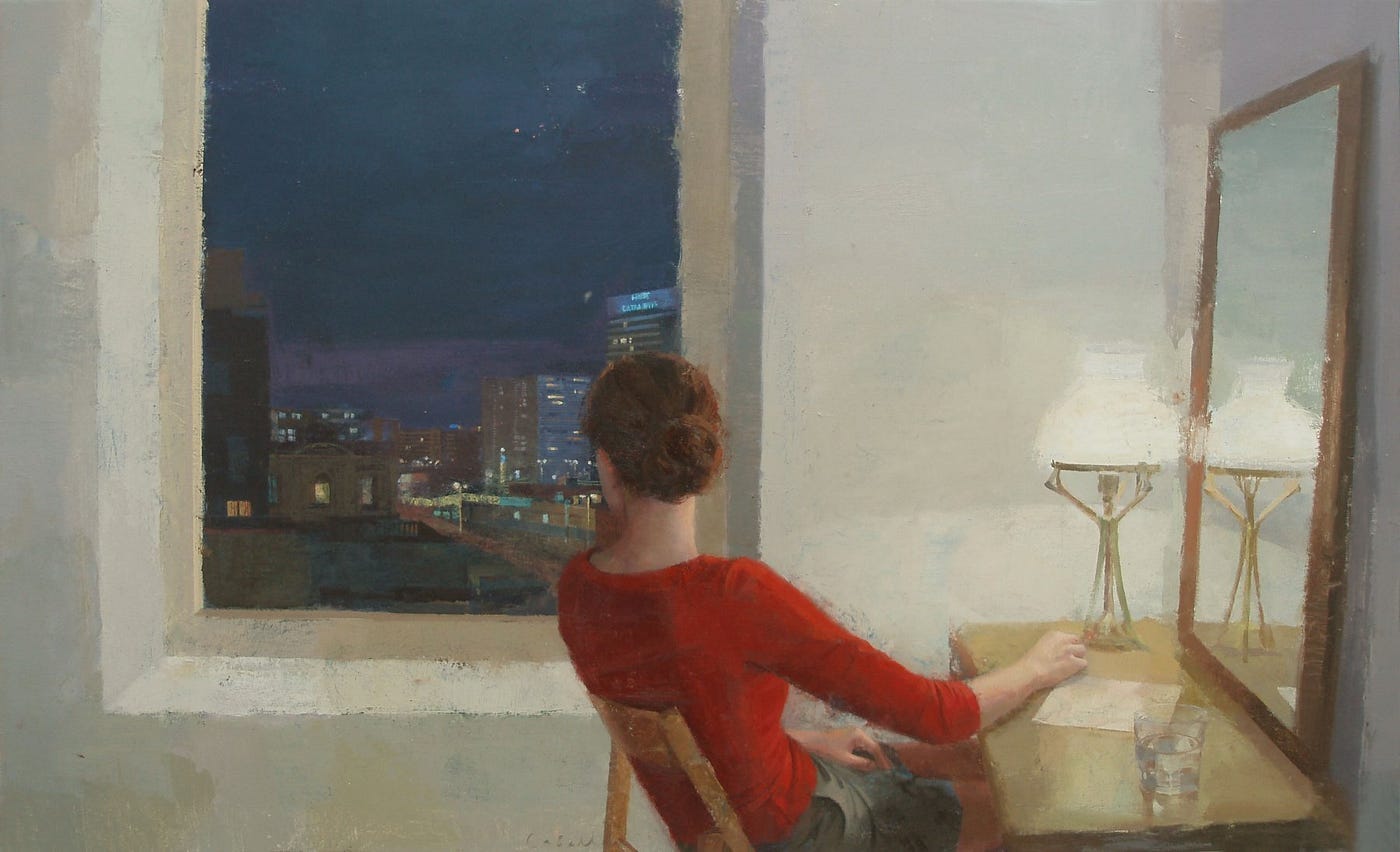to acquire a void within yourself

When you walk through a set of heavy wood paneled doors into St Dominic’s church in San Francisco, a profound quiet falls over you. A quiet that triumphs over the din of idling motorcycles on Steiner street, over the gloaming, the edges of curling fog — mutable as a passing impression or feeling, over the electric wires that gently pull the buses south over the slope, south and south until you run out of wire and light.
There are many routes to internal spaciousness. Here is Haruki Murakami on running:
All I do is keep on running in my own cozy, homemade void, my own nostalgic silence. And this is a pretty wonderful thing. No matter what anybody else says. I just run. I run in void. Or maybe I should put it the other way: I run in order to acquire a void.
My main realization as of late is that it is important to learn how to acquire a void within yourself. A personal, protected, void where you can think intensely and freely. Where you can be original and exploratory in your pursuits. Life is default saturated with obligation and restraint. The void is where you abstract away that layer of day to day complexity. How might your ideas actually collide with the surface of the world? How might you iterate slightly more each time to get more precise?
The void can be a specific action or place: Murakami’s runs, Ruskin’s cathedrals. I define it as a location in the mind that gives you permission to try new things. This necessarily means being initially mediocre at the new things. And importantly, not taking it as a personal affront against your lovability as a person or your value and worth. One real example: I’ve been trying a new style of writing this summer (not on here), and it’s been hard. Mostly, it just feels unnatural and unintuitive. Multi-turned choices feel difficult. I find it spiritually agonizing. It is painful to care deeply about the things you produce, and very hard to detach your self concept from the quality of what you make.
From Eleanor Wachtel’s interview with the poet Anne Carson: I feel it’s a kind of fervour of mine to get away from whatever body of information I rest on when I give opinions. And I think poetic activity is a method for doing that—you leap off the building when you think poetically; you don’t amass your data and then move from point to point, you have to just know what you know in that moment. Something freeing about that.
I’ve been reflecting on how there are not very many moments in your adult life where you can deviate from, as Carson says, the normal body of information you depend upon. Real Life necessarily comes with bills, entropy, and tradeoffs on the pareto frontier. Failure feels more fraught.
But the logical line of sight contains no poetry. And what’s the world without poetry? To acquire a void within yourself means that no matter what is externally pressing, there’s a precious inner reserve of play and innocence — the world is not yet disenchanted. The void is an internal frame. You can make new things and fail well. You can make promises to yourself and keep them. You can make yourself proud for sincere exertion of effort, even when it is from behind the curtain and no one is watching.
PS: I’ve been actively thinking about the future of this blog and how it relates to my wider queries regarding culture, technology, and art. It’s exciting! It’s scary. I’m going to be pushing out a lot more experiments - I’d love to hear your live reactions and thoughts.



Anything you write, I'll read
the concept of the void as an internal frame is fascinating! i worry about the amount of effort i exert defending the void's boundaries from self-criticism, external stimuli, etc. as you say, "it's very hard to detach your self concept from the quality of what you make." as always, thank you for sharing!